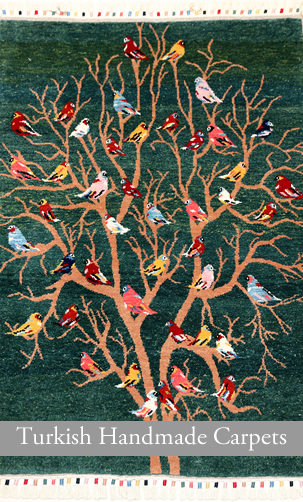Suzani is an embroidery cloth using as a partition and a cover in Uzbekistan and attract collectors’ attention as an excellent work of art. Its production flourished in 19th century, but the number of artisans of Suzani has recently dropped sharply.
It is said that the name “suzani” is derived from “suzan” that means “needle” in Persian. Generally suzani means a cotton cloth embroidered with silk thread elaborately. In addition, velvet or satin clothes and cotton or silk threads also used to produce suzani. Recently we can find many machine-made suzani and these products are displayed and selling at markets and souvenir stores. However, each pieces of old or antique hand-made suzani has particular charm, and these hand-made suzani has been rapidly disappearing from market by collectors.
There are particularly big works among hand-made suzani. Artisan makes a preliminary sketch on several pieces of cloth, and each clothe is embroidered by several artisans. Finally each clothes sew together up and a big suzani completes. Sun, stars, flowers, and fruits are its main motifs. Many motifs mean protection against evil or prayers.
Judged from its traditional use as a trousseau, it is supposed that almost all women could made suzani in old days. Women had been playing a center role in traditional art work all around the world. Due to modernization, however, working women are increasing in Uzbekistan. Many traditional arts lack its artists now, and suzani is not an exception. Concerning to this issue, in universities, there is a fact that there are young students who try to inherit the tradition of suzani. Now such students are increasing little by little.









